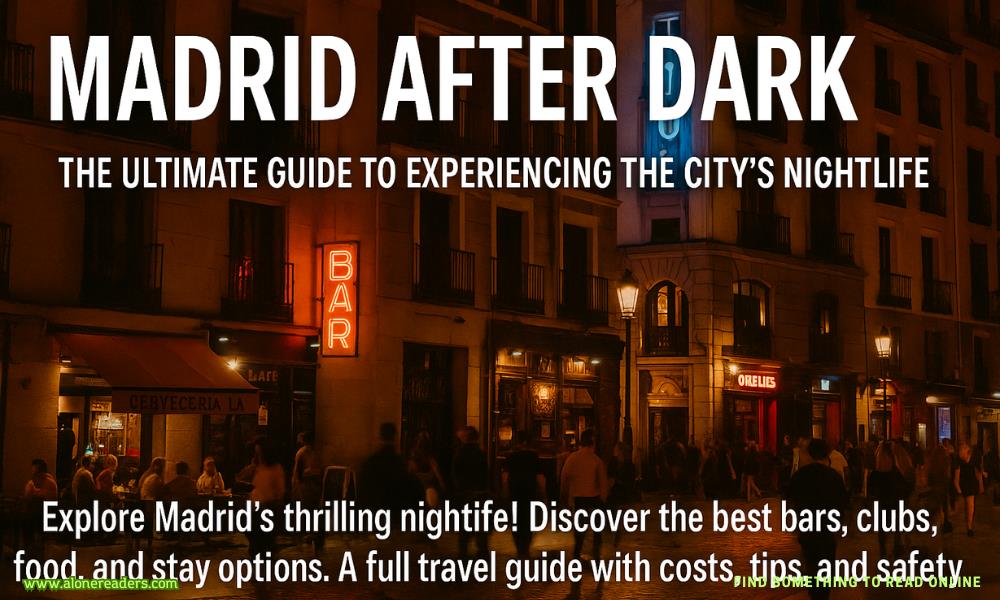Page 9 of The Boss Problem
Ever since the car accident, Henry had been confined to his wheelchair. He had good upper-body strength and minimal lower-body strength. He pulled himself in and out of his wheelchair when he needed to get to bed or had to use the bathroom. Most days were good. Some days, however, the pain got the better of him, and those days, he was emotionally and physically shut down, staying in bed for prolonged periods. I felt terrible on those days, bits of my guilt quietly creeping up on me.
It’s my fault he’s wheelchair-bound, remember?
We had been walking back home that night, and I was wrapped up in my own thoughts, dreaming about a future at The Juilliard School. Henry saw the car before I even heard it. The roar of the engine was drowned out by the thoughts buzzing in my head, excitement blurring my focus.
The car swerved to avoid a squirrel crossing the road, and the driver lost control. I was directly in its path.
Then, in one swift move, Henry shoved me aside, intervening at the last possible moment. I hit the ground, my back scraping against the rough bushes, the scent of crushed leaves filling my nose. The deafening screech of tires ripped through the air, but I was untouched. When I looked up with the metallic taste of panic rising in my throat, Henry was on the pavement, gasping in pain. The coppery smell of blood hung in the air.
He hadn’t been lucky.
He had taken the hit.
He had taken the danger meant for me.
If I’d noticed the car first, he wouldn’t have suffered. If I’d pulled him out of the way with me, he would have been spared.
If, if, and more ifs.
What remained was that I’d been foolish, and Henry had paid for it.
The only way I could assuage my guilt on those days was to give up something else I wanted to do for myself and spend time with Henry instead. Make him laugh, reduce his pain.
Lately, I’d noticed a correlation between his good days and staying on top of his meds, and I was hopeful he could have fewer bad times, going forward.
Just as I was thinking this, my phone began to buzz with a call. I took a quick glance around me before checking the caller. It was Henry.
Sean Tassater, the man who had taken over Mindwell Inc., was running late for this meeting, so I took my chance and answered the phone call.
“Hi, Chloe.” Henry’s voice, calm and confident, rang through clearly. “Are you busy?”
“Not at all,” I answered, forcing my voice to sound cheerful and happy.
I was always happy to speak to Henry. Even if in the midst of all my sisterly love, there was a thread of perpetual guilt, mixed with financial frustration. Guilt because Henry had saved my life, at a horrible cost to himself. Financial frustration because so much of what he needed—like therapy, better medicines—was constrained by my lack of funds.
“You know, I’m always grateful that you’re never busy whenever I call you,” Henry said after a moment’s silence, like he was musing out loud. “Even when you’re at work.”
“Isn’t that a good thing?” I asked, though I didn’t like the direction this conversation was about to take. “Say, Henry, did you?—”
“Don’t ask me if I’ve taken my medicines,” he groaned.
I exhaled just as I noticed a flurry of activity outside the room. Sean Tassater had probably arrived—and with him, the fate of my job.
“Anyway,” Henry continued, “I just called to ask how you’re doing. I know mergers are pretty scary for the employees, and there’s a lot of uncertainty associated with it. Are you okay?”
I made a noise of disbelief. “Of course I’m fine. You don’t need to worry about my job. I just spoke with the HR at Tassater Inc. They’re finding a new job for me here, I promise. You have nothing to fear.”
It was a blatant lie, but along with the fear of losing my job, I seemed to have lost my mind. I was now making promises I shouldn’t. For all I knew, this meeting could end with me getting laid off. A pit of fear expanded in my stomach, and I swallowed and tried to focus on something else.
Henry wanted to sign up for the student education association. The fees weren’t covered by his partial scholarship, and I knew I could afford it … if I had a paycheck to rely on.
When it came to college classes, Henry thrived in clubs where he got to teach. It challenged him and fulfilled his desire to be more to the people around him, to help more.
“You should sign up for the student club like you wanted to,” I said.
In the silence on the line, I could almost hear the wheels in his brain whirling with excitement.
“Are you sure?” he asked, but the lilt in his voice was back. He was excited now. Already planning the presentation slides for the upcoming class. “It costs two grand,” he reminded me.
- The Prince's Secret Twins by Elizabeth Lennox
- Tangled Desires by Tory Baker
- At the Edge of Surrender by A.L. Jackson
- A Touch of Fate by Cora Reilly
- Untouchable Love by Lucy Darling
- After Hours by Caitlin Crews
- Shelter from the Storm by Mari Carr
- Someone Knows by Vi Keeland
- Hawk by Fiona Davenport
- The Silencer by Brooke Summers
- The Beat of her Heart by Emily Hayes
- The Neighbor's Son by K. Webster
- Vasily the Hammer by C.B. Alice
- Convenient Vows by D.C. Beks
- Wrapped in Silver by Sara Vice
- Ruined By Capture by Sherry Blake







